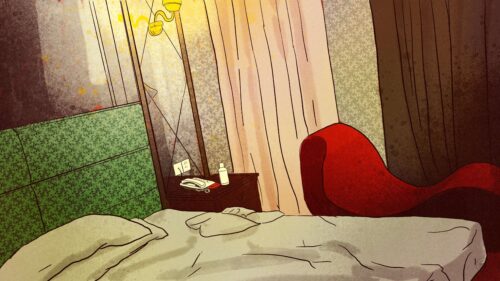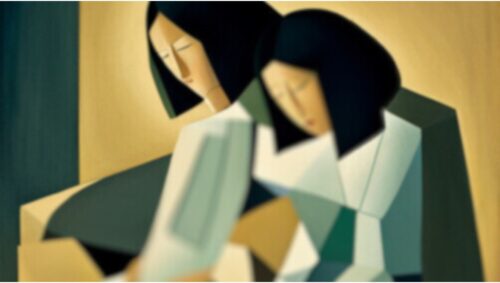‘Li Wenliang is our light’: Anger and grief after Wuhan doctor’s death
Wuhan writer Fang Fang, in a now-censored Weibo post, commemorates the 34-year-old doctor Li Wenliang, whose death of the coronavirus has sparked national mourning.

The outpouring of sadness and anger on social media after Dr. Lǐ Wénliàng’s 李文亮 death from the coronavirus in the early hours of Friday may become a generation-defining moment. While this national reaction is unlikely to spark much policy change, it likely marks a turning point in the disillusionment of a generation which previously seemed to accept, without question, the tradeoff between openness and stability.
Li was one of eight medical professionals reprimanded by Wuhan police in the early days of the outbreak for spreading word within his professional circle about the new virus’s similarity with SARS. Demands for freedom of speech trended on Weibo, and my entire WeChat Moments was filled with people from all walks of life posting with fury and abandon. Some declared, “The least I can do is risk my account being deleted to honor his memory.” Li’s death resonated with so many perhaps because he wasn’t trying to be political, but rather, just attempting to do some public good.
Fāng Fāng 方方, an accomplished novelist and Wuhan native, perhaps best captured her hometown’s reaction to Li’s passing in a Weibo post on Saturday. One reader’s comment pleaded with censors for leniency.
To Tencent’s censors: Teacher Fang, this article had me spilling hot tears. It’s not easy to be from Wuhan right now! Not only are people blocked, they have no right to speak. Please hold your hand high and turn a blind eye when deleting posts. If you can delay deleting posts for one minute, delay them for one minute. If you can hold off deleting them, hold off deleting them. The common people in Wuhan and all over China are counting on Fang Fang for these slice-of-life details.
Shortly after posting the following essay, Fang’s Weibo account was suspended.

~
Fang Fang: The night is dark, but Li Wenliang is our light
February 8, 2020
Translated by Pieter Velghe and Jordan Schneider
https://www.ipkmedia.com/19038-2/
It’s been 16 days since the city was sealed off. Yesterday, Li Wenliang died. I’m grieving. I immediately sent out a message on WeChat saying that everybody in Wuhan was crying for him tonight. Who would have guessed that the whole of China would be crying for him! The whole internet burst into tears because of this horrible situation. This night, Li Wenliang’s funerary barge was ferried over to the otherworld on a river of the people’s tears.
Today the weather is gloomy. Maybe Heaven is also mourning him. Actually, we have nothing to say about Heaven. After all, what does Heaven have to do with this? By noon, some people in Wuhan were yelling out: Li Wenliang’s family and children shall be raised by us, the people of Wuhan! Many people responded.
In the evening, the people of Wuhan turned off their lights when Li Wenliang passed away and, using flashlights or their cell phones, shot beams of light into the sky and blew whistles. In the deep dark night, Li Wenliang is this beam of light. After all this time, what can Wuhan people do to dispel the gloom, sadness, and anger in their hearts? Perhaps it can only be done this way.
Experts originally said that [the infection’s] turning point might come at the Lantern Festival. Now it seems that it won’t. Yesterday came the news of Li Wenliang’s death, and today came the news that the city will remain closed for another 14 days. My doctor friend said that this is the same amount of time that it takes for a Weibo account to get unblocked. Sigh. Those who have not been in Wuhan will not understand. We’re not suffering because we’re being confined to our homes and can’t go out. What the people of Wuhan need most is consolation and the space to get things off our chests. Is this why the death of Li Wenliang has the people of Wuhan feeling so broken inside, and has made them want to cry and shout hysterically? It’s because the people think they and Li Wenliang are one and the same, that he is one of them, someone who was also trapped at home.
The epidemic situation is more severe than previously predicted. The infection rate is even more acute than people think. And the sly and mysterious nature of the disease makes it even more difficult to grasp for experienced doctors. Some people have shown obvious signs of improvement, to then suddenly have their lives on the line again. And some people are clearly infected, but still appear completely fine. This coronavirus operates like a ghost, it spreads all around, catching people off guard at any time and place.
In any case, it’s the medical staff who suffer the most. They were the first to come into contact with people who caught the virus. In the central hospital where Li Wenliang used to work, it wasn’t just one Li Wenliang who died. As far as I know, three doctors have already died there. Almost every hospital has several medical staff ill in bed. These kind-hearted healers are all putting their own lives on the line to save others.
It was precisely in the early days when people were considered safe from human-to-human transmission — and also when Wuhan was holding a Two Sessions meeting and people were not allowed to send negative news — that many medical personnel along with their families were infected. My doctor friend said that the severe cases seemingly all came from that time. But now, protective measures have been taken and the number of infected medical personnel has been reduced. Even if there are still some, their illnesses are not that severe. My friend switched to another topic, saying that if more had been infected later, [after the meetings], everyone would have known human-to-human transmission was possible. No one had said it out loud because it wasn’t allowed. Do you not say something if you’re not allowed? How is it not problematic when everyone knows the truth and nobody says out? Why are hospital leaders not allowed to speak out? They’re not allowed, so is it any wonder that we also don’t speak out? Doctors have a responsibility. My friend directly grilled himself and his colleagues by asking these questions. I admire his self-reflection at this time.
I think they do have a responsibility. This is why we are grieving and indignant over the death of Li Wenliang. After all, he spoke out first, even though he was only reminding his friends, but still he laid bare the truth. However, Li Wenliang, who told the truth, was punished and eventually lost his life. Even on his deathbed he received no apologies. With such a result, will anyone still dare to speak out in the future? People like to say that “silence is golden” as a way to express their profundity. But what is this silence? Will we be confronted with the same silence again?
The whole city of Wuhan to this day is still in good order. Compared to the last couple days, the usually optimistic people of Wuhan are a bit more depressed and dejected. After all, the time spent locked inside the house has been too long, and many families don’t have much space. Even with the internet, people will still get fed up. What’s more, everyone has their own personal issues. For example, my two brothers and I are all diabetic. The doctor requires us to walk every day. My eldest brother used to take tens of thousands of steps. And my younger brother has to go out for a walk every morning and afternoon. Now, he has not been out of the door for a full 16 days. And I — although I’ve already resorted to just taking my medicine every other day — only have tomorrow’s dose left. Should I go to the hospital or not? I’m still hesitating.
Just now I saw a video showing residents of Wuhan driving eight cars to see Li Wenliang off. Eight characters represent the eight doctors that were reprimanded. Their eyes were full of fiery tears and their words choked with emotion. Not everyone is a tough guy, and not everyone can be rational. I’m afraid that in the next few days, the people of Wuhan will have more and more psychological problems. They need expert guidance. Dark humor alone can’t solve such a profound problem.
Translated by Pieter Velghe and Jordan Schneider





